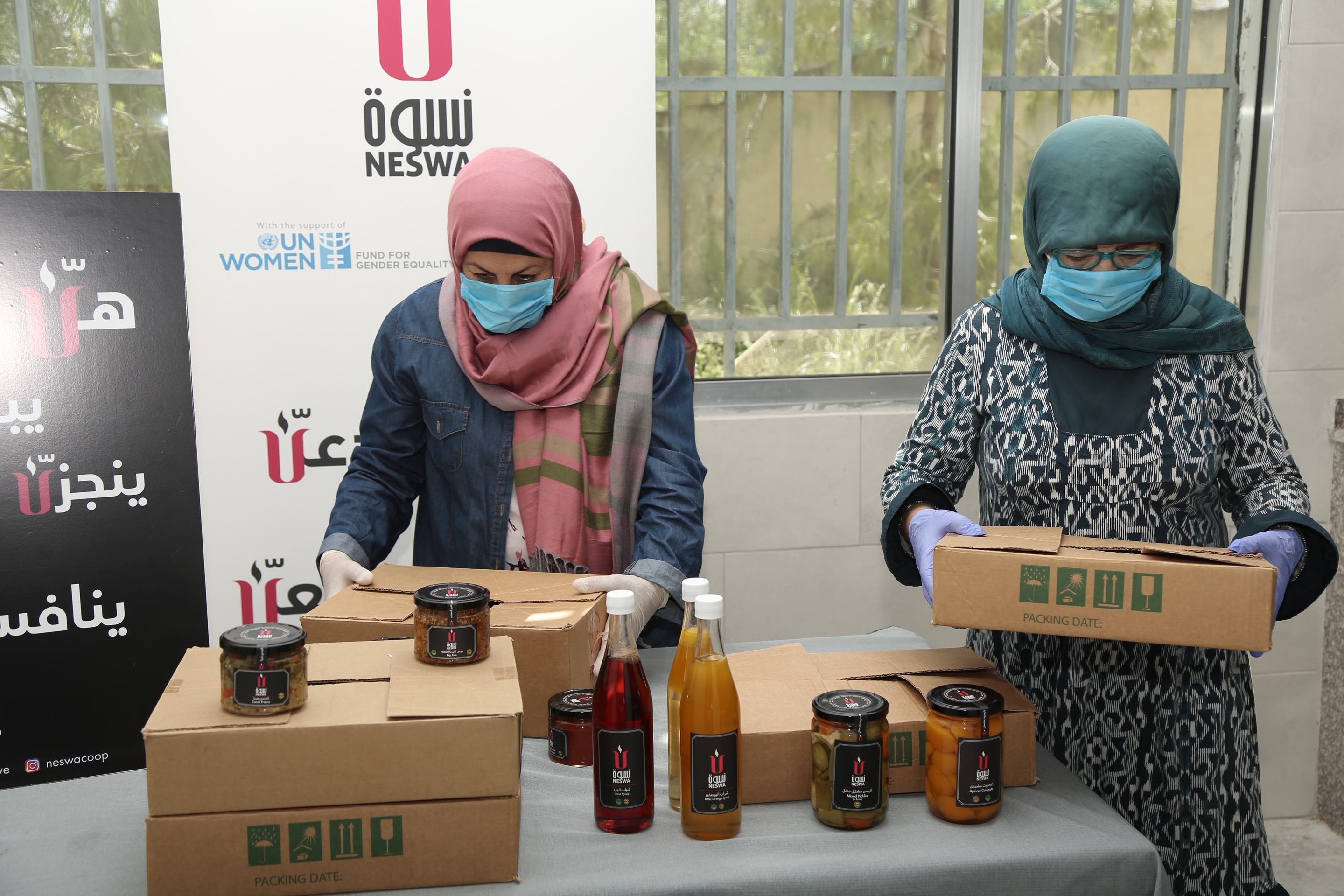Rural women social enterprise supports communities amid the COVID-19 crisis in Lebanon
Date:

The onset of the COVID-19 pandemic and the subsequent lockdown measures instituted by the Lebanese government have amplified Lebanon’s economic crisis and decreased the income of many households especially in marginalized regions.
According to a recent assessment by development organizations in Lebanon, of over 2,000 respondents, 48 per cent of women reported being laid off, compared to 40 per cent men, while 69 per cent of women strongly agreed their income has decreased due to the COVID-19 outbreak, compared to 54 per cent of men.
Amidst the crisis, NESWA Lebanon, a UN Women-supported rural women social enterprise with an agri-food product line, was able to cooperate with more than 15 municipalities in the context of their socio-economic response to the pandemic.
Following the outbreak of the COVID-19 pandemic, the concerned municipalities purchased all NESWA in-house available food stock products, namely over 1300 jars of jams, pickles, and syrups, among other items, and distributed them as food packages to 300 families, among the neediest in the community. In order to support the communities, NESWA sold the products at a discount rate and contributed to the discussions on ways to reach out to the receiving families.
“Municipalities have proven that they can be a partner to rely on, especially in times of crisis. The income from sales will help us to kick-off the new season’s production, at the cooperative”, says Nawal Jaber from Yanouh’s women cooperative, commenting on the initiative launched by three municipalities in the Tyre region.
A member of Janata’s municipal board, who preferred to remain anonymous, said “I feel proud that these municipalities were able to support the work of rural women by buying NESWA’s products for the community. It was a win-win situation since community members who received the food packages benefited from natural foods while NESWA cooperatives were able to use this income to further develop their business, amid of a difficult economic and health crisis.”
Amal Raha, a cooperative NESWA member from the village of Hmayreh, believes this initiative will help create a favorable image among the community towards the brand and will further position its mission as to through empowerment and innovation. She says “our products are now available in the homes of many families in the region. The financial return will allow us to launch our next phase of operations.”
Rana El-Houjeiri, FGE Portfolio Manager for the Arab States, says “NESWA Lebanon is a competitive business model. It brings a value chain approach that combines business profitability with social good to create a fairer economy and viable ecosystem for rural women’s entrepreneurship”.
Originally established as part of a women’s economic empowerment project implemented by the Lebanon Family Planning Association (LFPADE), with support from UN Women’s Fund for Gender Equality (FGE), in the Tyre Region, South Lebanon, NESWA has established four agri-cooperatives as per ISO 22000 and internationally accredited food and safety standards.
In addition, their business model has been successfully rolled-out and replicated by rural women’s cooperative NESWA Algeria, which established three production facilities of French cheese, organic honey and wool.